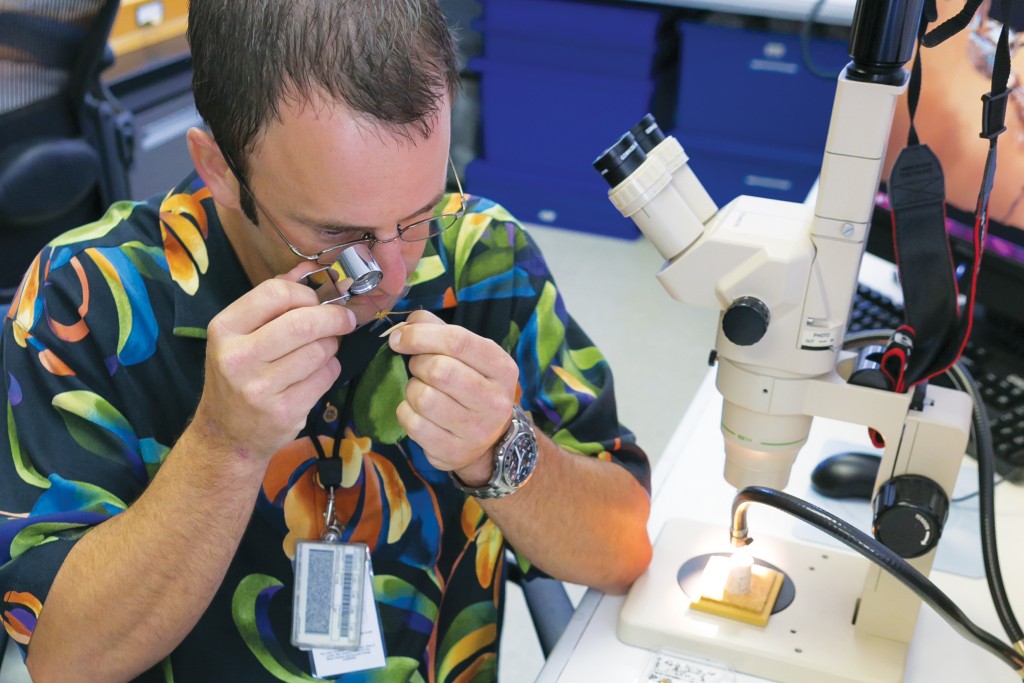My Job: Entomologist

Name: John David Nelson
Job: Entomologist
Years of experience: 14
STARTING OUT: Growing up on an Eastern Tennessee farm, Nelson says, insects were part of his daily life. But it wasn’t until he took an entomology class in college, then a summer job working with gypsy moths, that he found his calling.
“Growing up, I had always dreamed of being a fighter pilot,” says Nelson, 38. “But fate intervened and I turned my attention to the biological sciences. Farming has always been very appealing to me and I’m confident I’ll end up involved in agriculture at some point in my career. There’s certainly no lack of insects in agriculture.”
HIS START: After he graduated with a B.S. in biology, he worked in environmental education, then finished his master’s degree in entomology from the University of Tennessee in 2000. He immediately took a job with the U.S. Army; he’s one of 60 entomologists on the Army’s payroll and the only one in Hawaii, where he works at Tripler Army Medical Center. “We need bug guys to keep our guys safe,” he says.
BIGGEST MISCONCEPTION: “Entomologists are all white-bearded geeks with pocket protectors staring at specimens in windowless basements of museums, like Gary Larson’s portrayals in the ‘Far Side’ comics,” Nelson says. “Also, that we are fascinated by and love all insects. ’Tis not the case. Mosquitoes annoy me as much as the next guy. I just understand them a little better.”
HARDEST DAY: In 2004, Nelson worked on a biocontrol project in Tennessee during which he had to chase down highly excited beetles, put them in a jar and sex them under a stereoscope to ensure a proper ratio for mating. “With 10 females and five males per jar, that’s hard enough. But 125 jars make for a really long day.”
BIGGEST CHALLENGE: Nelson says kids are fearless about insects, but not adults. “Too many people are afraid of insects because they don’t understand them.”
TYPICAL PAY: Nelson says that, even with a Ph.D., the median salary for an entomologist is $50,000 a year. “Entomology is generally not a career that’s going to make you rich,” he says.
REWARDING: “As an entomologist, you can use your natural curiosity and enthusiasm to help solve some of the world’s toughest problems. Entomologists often use their knowledge to improve the quality of human life. That’s pretty rewarding.”






